Table of contents
Why drink tea for sinusitis?

Teas are an excellent alternative for fighting sinusitis. These home treatments are very powerful, since they have expectorant, antiseptic and anti-inflammatory properties, which helps reduce inflammation of the sinuses.
In addition, the infusions can relieve the most uncomfortable symptoms of sinusitis, such as stuffy nose, cough and that horrible feeling of pain or pressure in the face. In fact, if the symptoms are mild, the teas can do the job and leave you brand new.
One of the biggest advantages of these natural medicines is that you do not need to intoxicate the body. So, instead of always resorting to the pharmacy, it is worth using a home remedy. Read on and check out 5 recipes to get rid of sinusitis.
Tea for sinusitis with saffron
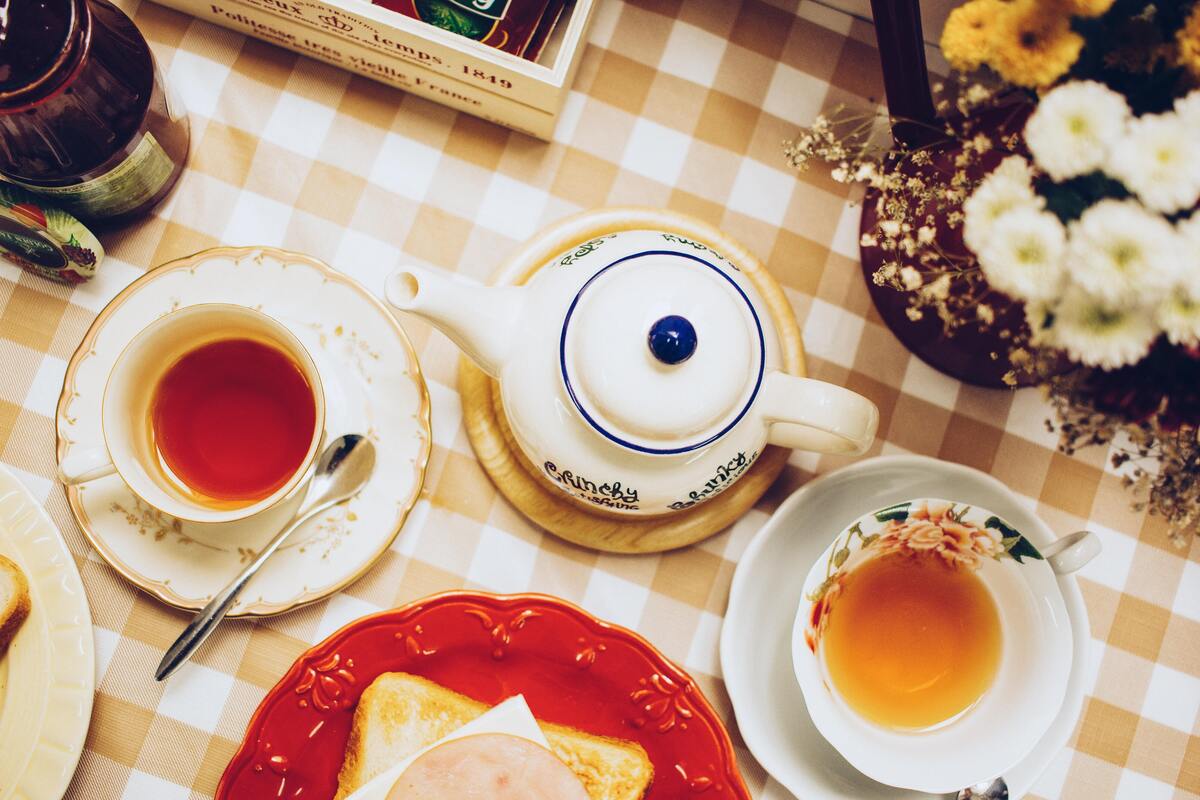
Saffron tea is widely consumed in India because of its healing properties. It optimizes the functioning of the body and has strong anti-inflammatory action. Learn more about this powerful infusion.
Properties
Saffron tea deserves to be highlighted in the fight against sinusitis, since its properties are wonderful. This plant is a source of vitamins B3, B6 and C, besides being rich in minerals, such as calcium, iron, manganese, copper, zinc and potassium.
Curcumin, responsible for the radiant color and flavor of saffron tea, is its main active ingredient. This substance is a flavonoid with great power to fight inflammation. Therefore, the infusion is considered by many a powerful ally in relieving the symptoms of sinusitis.
In addition, saffron is a powerful antioxidant and antispasmodic, so it helps decrease the pain caused by this ailment.
Indications
Saffron tea is slowly gaining popularity in the West, despite being widely consumed for thousands of years in India. Due to its numerous properties, it is the perfect alternative for the treatment of various ailments.
Among its medicinal powers, its anti-inflammatory action can be highlighted, very important in fighting sinusitis. This characteristic, by the way, works very well in winter, season of the year with higher incidence of respiratory tract diseases.
This drink is recommended in the treatment of sinusitis, because it helps the body as a whole to recover faster. In addition, it has expectorant action, ie, acts cleaning the airways, which tend to be very congested. Saffron tea also helps reduce inflammation, so it is also ideal for those who suffer from asthma.
Contraindications
Saffron tea can be used to care for various ailments, but it is not recommended for some groups of people. Check out the contraindications to the consumption of this infusion:
- Pregnant women: the tea can lead to miscarriage or stimulate premature labor;
- Those who suffer from heart problems or low blood pressure: the infusion has the power to further lower blood pressure;
- People who have gallstones or liver disease: saffron may increase bile production;
- Individuals with an allergy to olives: those allergic to this food may suffer the same reactions when they come into contact with saffron. All plants of the genus Olea are included, the olive being one of its members.
Ingredients
Saffron tea can be prepared in two ways: with fresh root or powdered. The result and the potency of the drink will be the same. So check out the list of ingredients needed to make both versions:
- 1 teaspoon of saffron powder or 1 tablespoon of grated saffron (already properly sanitized and peeled). Be careful when using the fresh root, because it usually dyes everything. The tip to avoid yellow hand is to use gloves;
- 1 cup boiling water;
- Freshly ground black pepper to taste (optional);
Black pepper is used to increase the power of curcumin, the main active ingredient in saffron. This makes your tea even more powerful.
How to do
Take a small piece of the saffron in natura and, using the grater, grate it using gloves (so as not to get a yellow hand). With a tablespoon, measure and reserve in a dark colored container (this root tends to dye objects as well).
If you are using powdered saffron, pour it directly into the container in which the infusion will be made. As soon as the water boils, pour it into the container with the saffron and, if you want, add freshly ground pepper. Cover the container and let it rest for about 15 minutes.
Tea for sinusitis with ginger and garlic
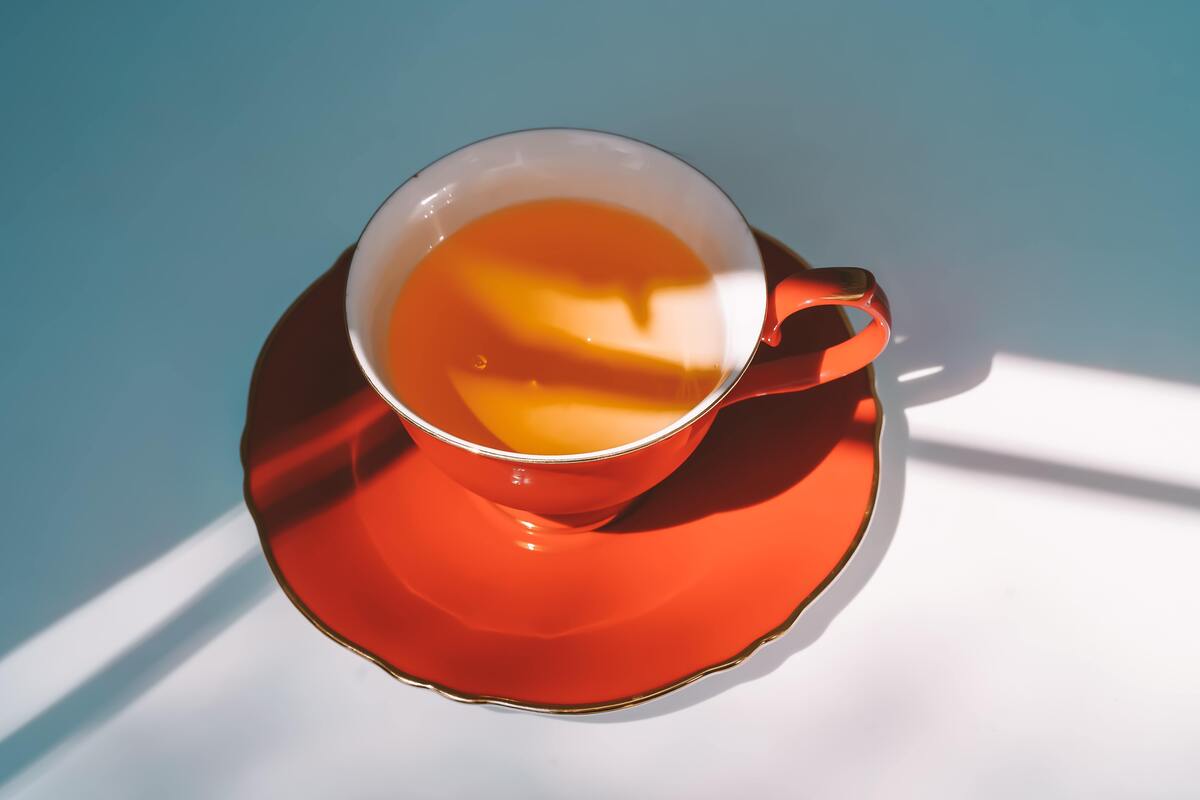
Ginger and garlic tea combines two powerful foods to combat respiratory problems, such as sinusitis. Many people are probably wrinkling their noses wondering what the infusion smells like, but know that ginger is aromatic enough to neutralize the pungency of garlic. Check out more about this drink below.
Properties
The ginger and garlic tea presents antibacterial, antioxidant and anti-inflammatory properties. This happens because of the presence of substances such as allicin, active ingredient of garlic, which is a powerful natural antibiotic.
Ginger has phenolic compounds, such as gingerol (with antioxidant and anti-inflammatory action), shogaol (with anti-inflammatory function) and zingerone (a powerful antioxidant). This infusion is also rich in vitamin C, which strengthens the immune system. In addition, the expectorant properties of garlic help reduce the accumulation of mucus.
Ginger also has an analgesic action and gives the tea a delicious flavor. Therefore, this combination of ginger and garlic is perfect to combat the discomforts of sinusitis, such as stuffy nose, facial pain, runny nose and malaise.
Indications
The ginger and garlic tea is indicated to help in the treatment of various ailments. This happens because both are great anti-inflammatory and natural antibiotics, helping to relieve diseases such as sinusitis and asthma, and symptoms such as headache and sore throat.
For those who have a stuffy nose, the recommendation is to bet on this hot drink, since the steam itself starts the process of nasal decongestion. It can be said that this infusion also eases the cough, regulating the production of body fluid and reducing fever.
In addition, this tea is able to strengthen immunity, decreasing the duration of sinusitis and the chances of a new crisis happening.
Contraindications
Ginger and garlic tea has many benefits, but also some contraindications. Find out below whether or not you can consume this drink:
- People with problems related to low blood pressure: the combination of ginger and garlic can further reduce blood pressure;
- Those who suffer from bleeding disorders, have recently undergone surgery or take anticoagulant medication: the infusion should be avoided as it may increase the risk of bleeding;
- Pregnant women: you must consult a doctor, since the consumption of large amounts of ginger is not recommended. The ideal is not to exceed 1g of the root per day.
Ingredients
The ginger and garlic tea is easy to prepare and, contrary to what many imagine, is with a delicious aroma and flavor. Check out what are the ingredients you'll need:
- 3 garlic cloves (peeled and cut in half);
- 1 cm of ginger root or ½ teaspoon of ginger powder;
- 3 cups mineral or filtered water;
- Honey to taste (optional, to sweeten).
How to do
Boil the water with the garlic cloves, then remove from heat, pour the mixture into a container and add the ginger. Cover the container and leave to infuse for approximately 5 minutes.
After this time, strain and add honey to taste, if you want the tea sweeter. Remember that ginger, when heated, gets a sweet taste.
Tea for sinusitis with onion
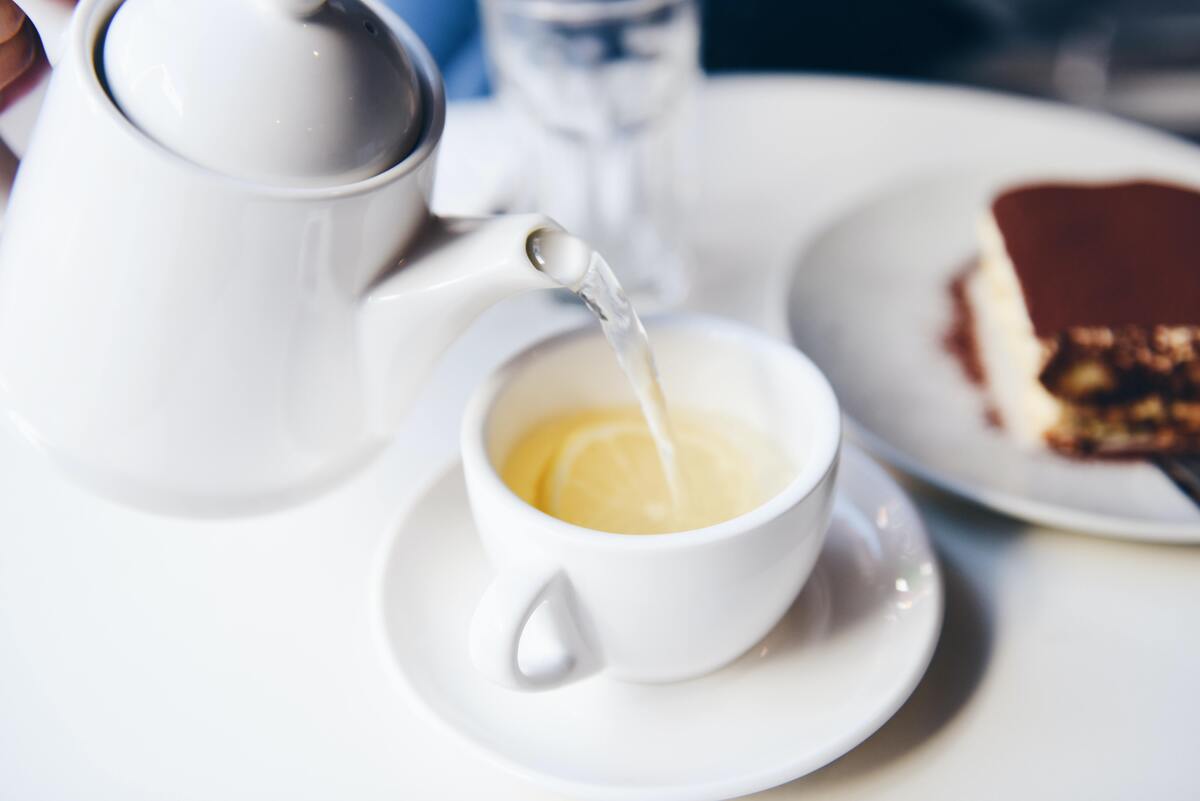
Onion tea has great effectiveness to help treat sinusitis. This is because this food is a powerful decongestant, being a great option to relieve the symptoms of this disease. Find out how to prepare it below.
Properties
Onion tea has antioxidant and anti-inflammatory properties, in addition to being rich in vitamins and minerals. The tip to make the most of its potential is to drink the infusion still hot. A curiosity is that the onion skin is richer in medicinal properties than the pulp.
To give you an idea, this part of the food has a high content of antioxidant compounds and also quercetin, an active flavonoid with anti-inflammatory action. In addition, the infusion is rich in vitamins A, B6 and C, and minerals such as iron, which strengthen the immune system and help fight diseases.
Indications
Onion tea is indicated to ease coughs and the inconvenience of stuffy nose, some of the main symptoms of sinusitis. This happens because the drink is rich in quercetin, a flavonoid with anti-inflammatory and analgesic action.
In fact, the infusion works perfectly as a home remedy to fight sinusitis, as it is able to clean the sinuses from the inside out, while also acting as an anti-inflammatory, reducing local irritation.
Thanks to its decongestant properties, it is also an excellent ally to end allergic crises, because onion tea can reduce the production of phlegm. Therefore, it is worth saving onion peels that would be discarded and make tea whenever necessary.
Contraindications
Onion tea has few contraindications, but should be used sparingly by people with a more sensitive stomach, since it can cause gas and increased stomach acidity. For pregnant and lactating women, you must limit the consumption of onion infusion, since it can cause heartburn, especially in early pregnancy.
In addition, some side effects of consuming this drink are noticed rarely, such as burning sensation, nausea and vomiting.
Ingredients
Onion tea is a home remedy that should be made preferably with the peel of the food. However, it can also be prepared with the pulp. Check out what you will need to make this powerful drink to combat sinusitis:
- Peel 1 medium onion or the pulp of 1 medium onion cut into small pieces;
- 500 ml of water;
- Honey to taste (to sweeten, optional).
How to do
To prepare onion tea, just follow this step by step:
- Place the onion peel or pulp in a pot of water and bring to a boil. Once it begins to boil, remove from heat and set the mixture aside in a container.
- Then, cover the container and let it infuse for about 10 minutes. Then, just strain it and sweeten the drink with honey, if you want.
- You can consume 2 to 3 cups of the tea per day.
Tea for sinusitis with chamomile
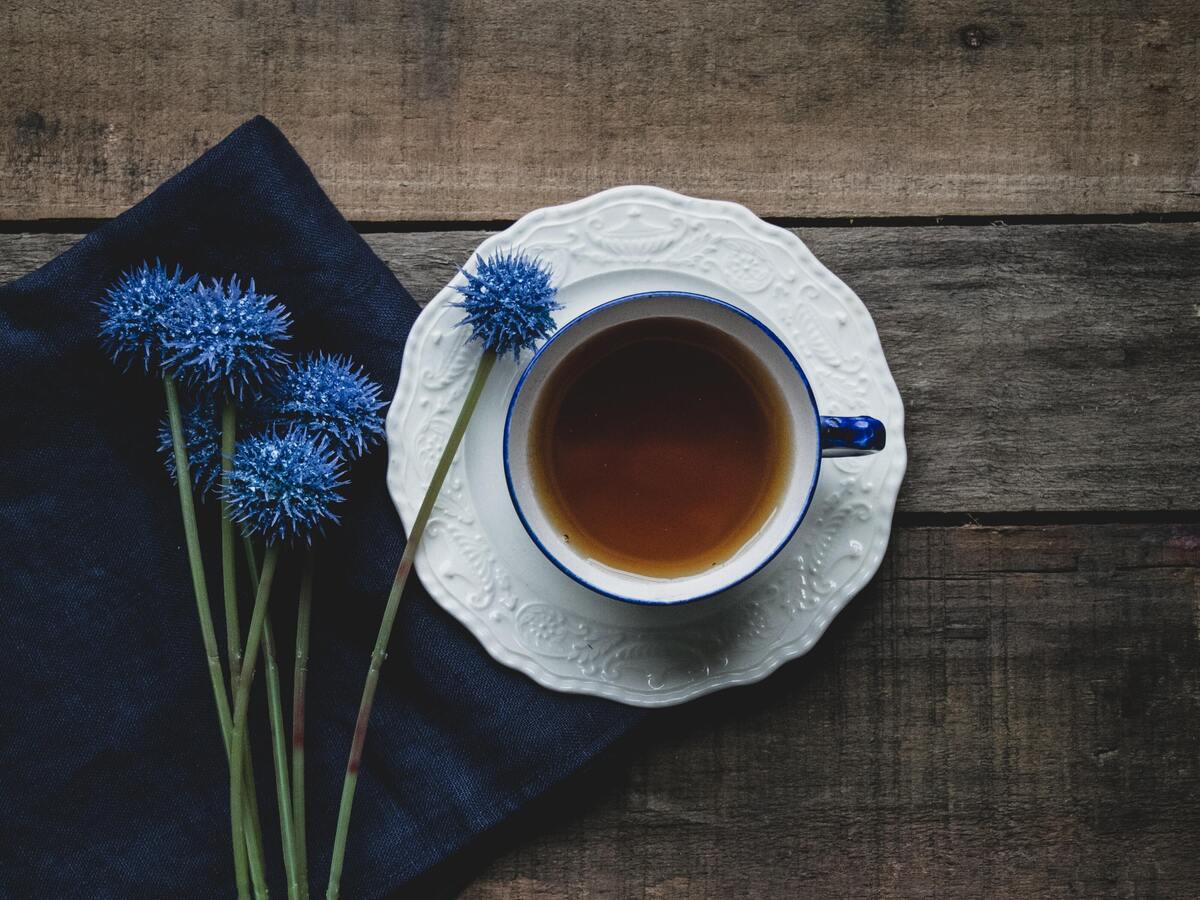
Chamomile tea is often consumed as a tranquilizer before bed, but it plays an important role in fighting the symptoms of sinusitis. Find out below how this natural remedy has been helping the whole world for centuries.
Properties
The properties of chamomile tea bring numerous advantages to its consumption. Among the medicinal benefits are the flavonoids apigenin (anti-inflammatory and antioxidant), luteolin (anti-tumor and antioxidant), patuletin (analgesic) and quercetin (anti-inflammatory and antioxidant).
The drink also has essential oils such as azulene, which is responsible for several of the actions of this powerful infusion. This compound works as an anti-inflammatory, anti-allergic, soothing and sedative. Therefore, the tea is ideal for relieving discomfort caused by sinus attacks.
In addition, chamomile infusion is rich in nutrients such as iron, magnesium, calcium, zinc and potassium. Vitamins A, D, E, K and B complex (B1, B2, B9) are also present.
Indications
Chamomile flower tea has many therapeutic benefits, as it is an excellent anti-inflammatory, antimicrobial and soothing agent. Therefore, it is highly recommended to ease the unpleasant symptoms of respiratory diseases, such as sinusitis.
By the way, chamomile inhalation is a great option to treat colds, flu, sinusitis and any disease that attacks the airways. This happens because the steam eases the discomfort caused by runny or congested nose, because it warms and moistens the affected region.
When it comes to inhalation, pediatric use is also indicated, but it is worth noting that the process in children should be done under constant adult supervision, because there is a risk of burns.
Contraindications
Chamomile tea is one of the most consumed infusions in the world, but it is contraindicated for some groups of people. This drink should not be ingested by those who are allergic to plants such as daisy, chrysanthemum, ambrosia, and mal-me-quer, because they all belong to the same family as chamomile.
In addition, individuals who have coagulation disorders, or are treated with warfarin or heparin need to avoid using this infusion because of the risk of bleeding. By the way, pregnant women, nursing mothers, and children should seek medical advice before drinking chamomile tea.
Ingredients
Chamomile tea is highly recommended as a natural option in the treatment of sinusitis, as it relieves the discomforts of a congested nose. Check out what you will need to prepare this infusion:
- 6 teaspoons of chamomile flowers;
- 2 liters of boiling water;
- Large towel to do the inhalation.
How to do
The preparation of chamomile tea is very simple, just put the water and chamomile in a container, cover and leave to infuse for about 5 minutes.
After this period, you can start the inhalation process. Use a large towel to cover your head to enhance the treatment effect. Breathe deeply the steam of the infusion for about 10 minutes. Inhalation can be done 2-3 times a day.
Tea for sinusitis with mint, chamomile and eucalyptus honey

Mint, chamomile and eucalyptus honey tea is a powerhouse of aroma, flavor, freshness and medicinal power. It is perfect for fighting respiratory ailments, such as sinusitis. Check out everything about this heavyweight combination below.
Properties
Mint tea, chamomile and eucalyptus honey is very powerful in fighting sinusitis, since it unites the properties of the three foods. Chamomile brings the anti-inflammatory, antiseptic and analgesic actions through apigenin, a flavonoid that helps ease nasal congestion, besides reducing inflammation.
Eucalyptus honey, on the other hand, provides the expectorant and antiseptic properties, which have the ability to quickly relieve unpleasant symptoms in the respiratory tract. In addition, its compounds provide a darker coloration and a refreshing taste to the tea.
The mint infusion is rich in powerful antioxidants and anti-inflammatories, and also has several essential oils, such as menthol, menthone and limonene, which give that refreshing and delicious feeling to the tea, clearing the airways immediately.
Indications
Mint tea, chamomile and eucalyptus honey is a powerful home remedy to relieve the symptoms of sinusitis. The combination of these elements works like a bomb to deflate and decongest the nasal region.
By the way, the strong but pleasant and refreshing aroma of the hot drink is one of those responsible for opening the respiratory tracts. The infusion containing mint also eases the discomforts caused by asthma and other diseases related to breathing.
One of the components of this tea, chamomile reduces the inflammation of colds, flu and sinusitis. Thus, it also helps to reduce the uncomfortable pain in the face, characteristic of these diseases. The eucalyptus honey present in the tea is indicated to treat symptoms such as cough, due to its expectorant action.
Contraindications
Mint, chamomile and eucalyptus honey tea is contraindicated in cases of:
- Pregnant or lactating women;
- Children under 8 years of age;
- Those who suffer from obstruction of the bile ducts;
- Carriers of anemia;
- People with allergies to mint essential oil or to plants of the chamomile family, such as daisy, ambrosia, chrysanthemum, and malme-quer.
Ingredients
Prepare mint, chamomile and eucalyptus honey tea is very simple and needs only 4 ingredients:
- 15 to 20 mint leaves;
- 6 teaspoons of chamomile flower;
- 1 tablespoon eucalyptus honey;
- 500 ml boiling water.
How to do
Place the chamomile flowers and mint leaves in a container, add boiling water and cover the container. Leave to infuse for about 5 minutes. Then strain and add the eucalyptus honey. The drink can be consumed up to 3 times a day.
How often can I take the tea for sinusitis?
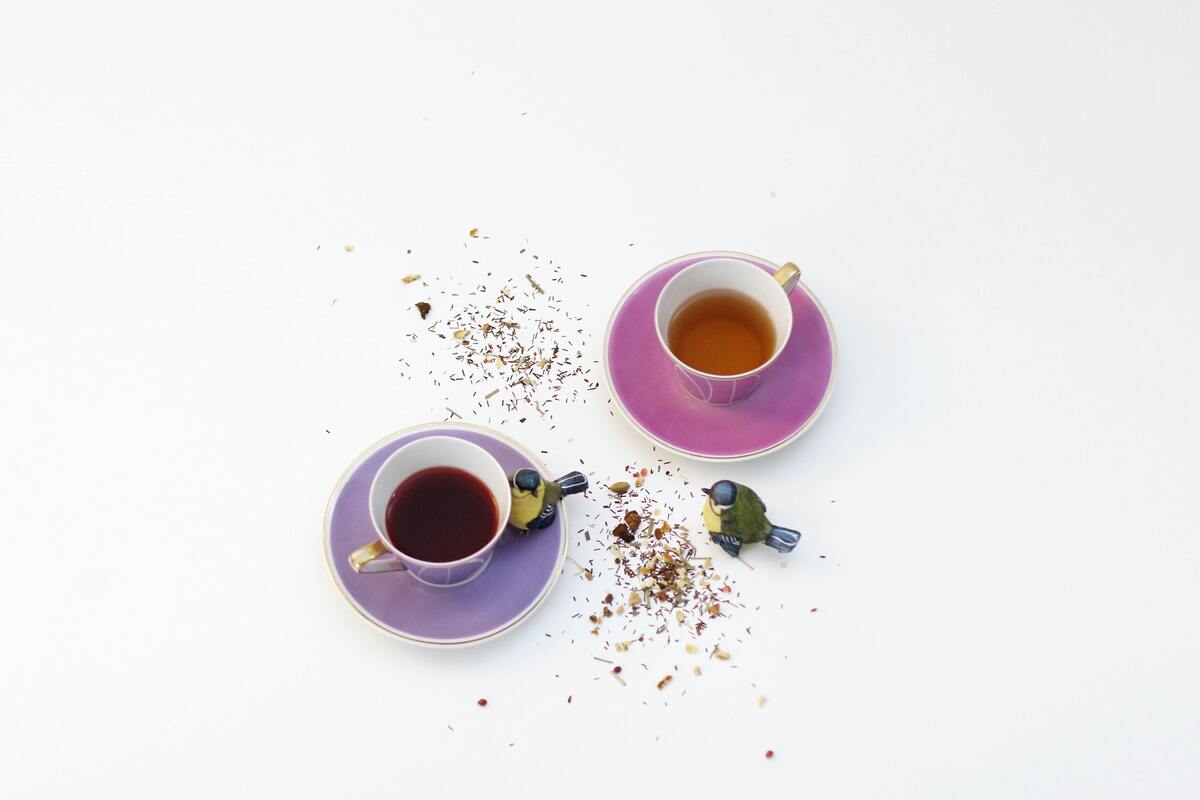
As the teas for sinusitis can have several ingredients, the frequency of consumption also varies. In general, the infusions can be ingested daily, fasting or after meals, since some drinks also have properties that help in the digestion process.
In the case of saffron tea, the ideal is not to drink more than 1 cup a day, since this root can be toxic when consumed in excess. As for the infusions of ginger and garlic; onion; chamomile; and mint, chamomile, and eucalyptus honey can be consumed 2 to 3 times a day.
Remember that teas are a natural alternative treatment and should be used in moderation. By the way, if symptoms persist or are more severe, do not hesitate to seek medical advice.

